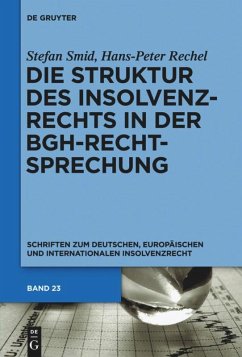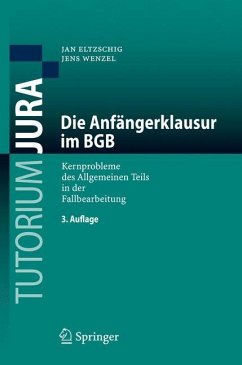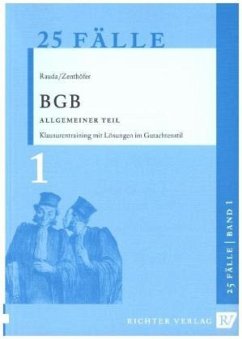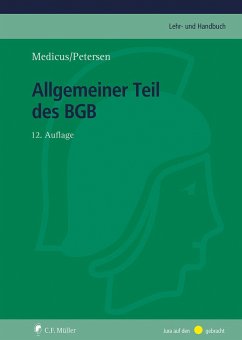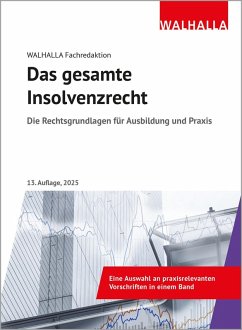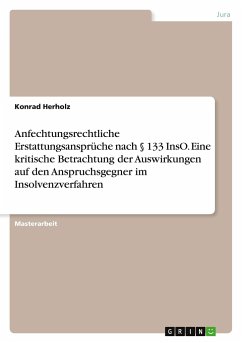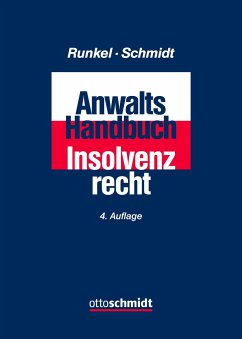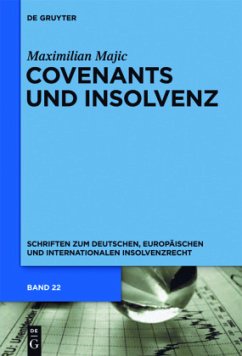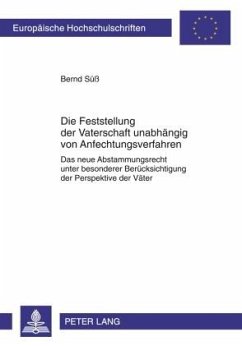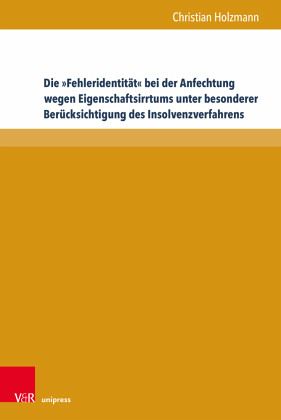
Die »Fehleridentität« bei der Anfechtung wegen Eigenschaftsirrtums unter besonderer Berücksichtigung des Insolvenzverfah
Dissertationsschrift

PAYBACK Punkte
0 °P sammeln!
Die sog. Fehleridentität bei der Anfechtung eines Rechtsgeschäfts wegen Eigenschaftsirrtums nach § 119 Abs. 2 BGB ist die umstrittenste Fallgruppe im Anfechtungsrecht. Die Fehleridentität führt dazu, dass die Anfechtungsnorm nicht nur zur Nichtigkeit des Verpflichtungsgeschäfts, sondern auch des (abstrakten) dinglichen Rechtsgeschäfts führt. Ihre Anwendbarkeit wird kontrovers diskutiert. Der Streit geht auf das Abstraktionsprinzip zurück, das zu den charakteristischen Merkmalen des deutschen Zivilrechts gehört und als Vollendung des Trennungsprinzips angesehen wird. Das Trennungs- un...
Die sog. Fehleridentität bei der Anfechtung eines Rechtsgeschäfts wegen Eigenschaftsirrtums nach § 119 Abs. 2 BGB ist die umstrittenste Fallgruppe im Anfechtungsrecht. Die Fehleridentität führt dazu, dass die Anfechtungsnorm nicht nur zur Nichtigkeit des Verpflichtungsgeschäfts, sondern auch des (abstrakten) dinglichen Rechtsgeschäfts führt. Ihre Anwendbarkeit wird kontrovers diskutiert. Der Streit geht auf das Abstraktionsprinzip zurück, das zu den charakteristischen Merkmalen des deutschen Zivilrechts gehört und als Vollendung des Trennungsprinzips angesehen wird. Das Trennungs- und Abstraktionsprinzip im Insolvenzverfahren (manifestiert in § 47 InsO), der Grundsatz der Gläubigergleichbehandlung (par conditio creditorum) sowie weitere spezifisch insolvenzrechtliche Wertungen und Maßgaben verhindern, dass ein rechtsgrundlos Verfügender die wirtschaftlich vorteilhafte Stellung eines Aussonderungsberechtigten im Insolvenzverfahren erlangen kann. Vielmehr wird der gemäß § 119 Abs. 2 BGB Anfechtende den gewöhnlichen Insolvenzgläubigern nach § 38 InsO gleichgestellt.
The "identity of errors" (Fehleridentität) in the avoidance of a legal transaction on the grounds of a mistake in property in accordance with section 119 (2) of the German Civil Code (BGB) is the most controversial case in the law of voidability (Anfechtungsrecht). The identity of errors provokes not only the invalidity of the obligatory transaction (Verpflichtungsgeschäft), but also the (abstract) legal transaction in rem. Its applicability has therefore been controversially discussed. The dispute has its origin in the abstraction principle (Abstraktionsprinzip), a characteristic of the German Civil Code, which is regarded as the completion of the separation principle (Trennungsprinzip).
The "identity of errors" (Fehleridentität) in the avoidance of a legal transaction on the grounds of a mistake in property in accordance with section 119 (2) of the German Civil Code (BGB) is the most controversial case in the law of voidability (Anfechtungsrecht). The identity of errors provokes not only the invalidity of the obligatory transaction (Verpflichtungsgeschäft), but also the (abstract) legal transaction in rem. Its applicability has therefore been controversially discussed. The dispute has its origin in the abstraction principle (Abstraktionsprinzip), a characteristic of the German Civil Code, which is regarded as the completion of the separation principle (Trennungsprinzip).
Dieser Artikel kann nur an eine deutsche Lieferadresse ausgeliefert werden.




